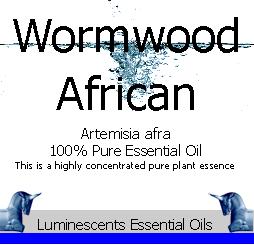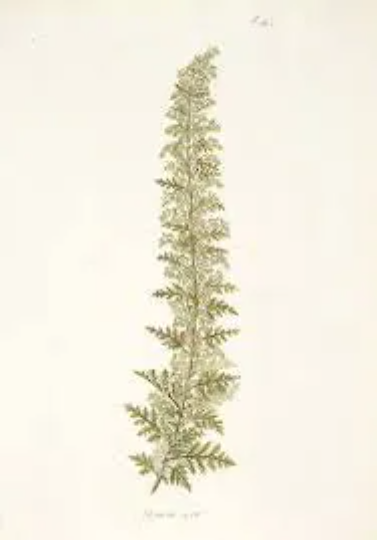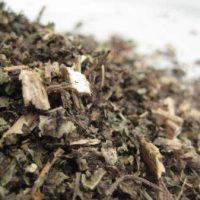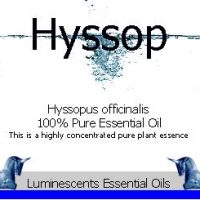African Wormwood is native to South and East Africa and is an erect evergreen perennial plant, with masses of finely-divided aromatic silvery-white leaves and single-sided sprays of yellow daisy-like flowers. This plant is cultivated for its foliage effects, but in colder and more temperate regions it requires the protection of a wall.
Traditional Uses for Rare African Wormwood Essential Oil:
A very rare oil
Antispasmodic, carminative, choleretic, diaphoretic, diuretic, emmenagogue, nervine, orexigenic, stimulant, stomachic, tonic (uterine, womb), vermifuge. It is known to be used to expel worms, control fever and as a digestive remedy.
Major chemical constituents of wormwood oil include chamazulene (18%), nuciferol butanoate (8%), nuciferol propionate (5%), and caryophyllene oxide (4%). The essential oils also contain a large amount of aromatic compounds (41%) and a low level of oxygenated monoterpenes (24%). The plant contains a pleasant-smelling volatile oil (about 1% to 2% by weight), absinthin as well as phellandrene, pinene, azulene, and more than 6 other minor components.
Rare African Wormwood Essential Oil Blends Well With:
Patchouli, Lavender, Oak Moss, Rosemary, Pine, Sage, Clary Sage and Cedarwood.
History of Wormwood:
Also known as Old woman, Greater Mugwort, Silvery Wormwood. The word “wormwood” comes from Middle English “wormwode” or “wermode”. The form “wormwood” is influenced by the traditional use as a cure for intestinal worms. Webster’s Third New International Dictionary attributes the etymology to Old English “wermōd” (compare with German Wermut and the derived drink Vermouth). An alternate explanation dubiously combines the Old English “wer”, meaning “man” (as in “werewolf”), with OE “mōd”, meaning “mood”.
CAUTIONS:Use well diluted. African Wormwood essential oil is toxic, arbortifacient and a neurotoxin.






